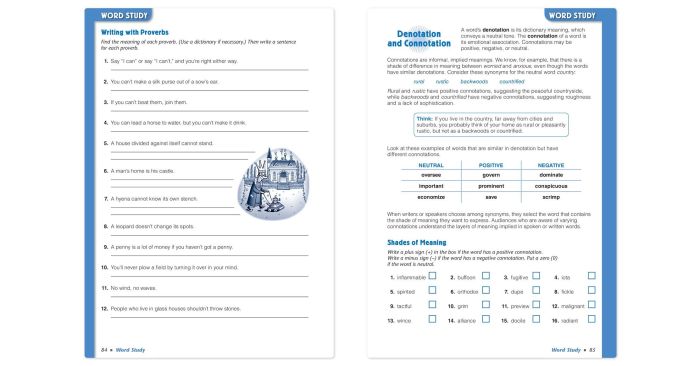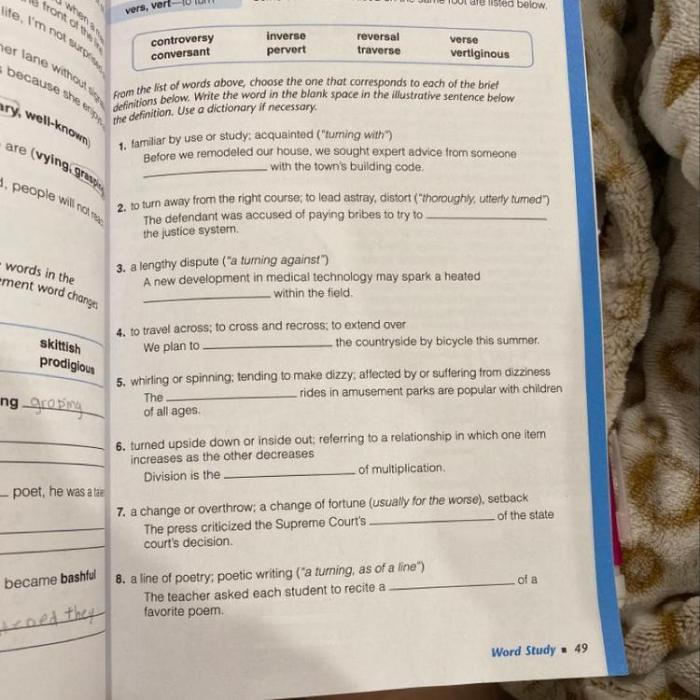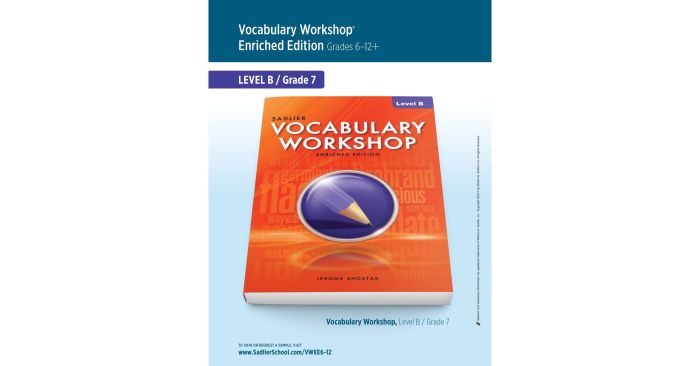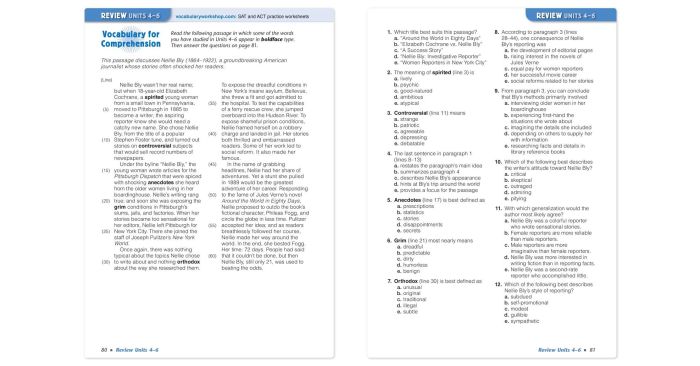Embark on a journey to expand your vocabulary with Vocabulary Workshop Unit 12 Level E, meticulously designed to empower learners with the tools and strategies to master the nuances of language. Through engaging exercises, expert guidance, and real-world applications, this comprehensive unit unlocks the secrets to effective communication and academic success.
As you delve into the intricacies of root words, prefixes, and suffixes, you’ll discover the building blocks of vocabulary and the power of word analysis. Engage in interactive activities that challenge your understanding of parts of speech, synonyms, antonyms, and homophones, honing your ability to dissect and comprehend words with precision.
Vocabulary Workshop Unit 12 Level E

Vocabulary Workshop Unit 12 Level E aims to enhance students’ vocabulary skills by introducing effective techniques for vocabulary expansion, word analysis, and context-based application. The unit targets intermediate English language learners seeking to improve their reading comprehension, writing proficiency, and overall communication abilities.
Vocabulary Building Techniques, Vocabulary workshop unit 12 level e
To expand vocabulary effectively, this unit emphasizes the use of root words, prefixes, suffixes, and context clues. Root words form the foundation of words, while prefixes and suffixes modify their meaning. Context clues provide hints within a sentence or passage to infer the meaning of unfamiliar words.
Examples and exercises are provided to demonstrate these techniques. For instance, students learn that the root word “chron” means “time,” and the prefix “anti-” means “against.” By understanding these components, students can deduce the meaning of words like “chronology” (study of time) and “anticipate” (expect in advance).
Word Analysis and Vocabulary Development
Word analysis plays a crucial role in vocabulary development. This unit teaches students to identify parts of speech (nouns, verbs, adjectives, etc.), synonyms (words with similar meanings), antonyms (words with opposite meanings), and homophones (words with the same pronunciation but different meanings).
Exercises challenge students to analyze words and understand their relationships. For example, students may be asked to identify the part of speech of “run” in the sentence “The boy runs quickly.” They may also be asked to find synonyms for “happy” and antonyms for “cold.”
Vocabulary in Context
This unit emphasizes the importance of using vocabulary in different contexts. Students are exposed to texts and passages that illustrate vocabulary usage. They learn how to recognize and interpret vocabulary in context, expanding their understanding beyond isolated word meanings.
Activities encourage students to apply vocabulary in real-world situations. For instance, students may be asked to write a paragraph using a specific set of vocabulary words or to participate in a discussion where they use vocabulary appropriately.
Vocabulary Assessment
To evaluate students’ vocabulary progress, this unit provides various assessment tools. Quizzes and tests assess students’ understanding of vocabulary concepts and their ability to use vocabulary in context. Writing assignments allow students to demonstrate their vocabulary knowledge through extended writing tasks.
Ongoing assessment and feedback are crucial for student growth. This unit emphasizes the importance of providing regular feedback on students’ vocabulary performance, helping them identify areas for improvement and track their progress.
FAQ Compilation: Vocabulary Workshop Unit 12 Level E
What is the target audience for Vocabulary Workshop Unit 12 Level E?
This unit is designed for learners who seek to enhance their vocabulary skills for effective communication in academic and professional settings.
What are the key techniques covered in this unit?
The unit emphasizes effective vocabulary building techniques, including root word analysis, prefixes, suffixes, and context clues, along with word analysis strategies for identifying parts of speech, synonyms, antonyms, and homophones.
How is vocabulary assessed in this unit?
Vocabulary assessment involves a combination of quizzes, tests, and writing assignments, providing ongoing feedback and evaluation of learning outcomes.


